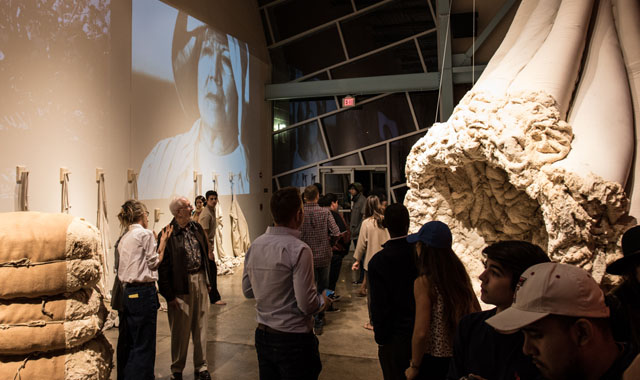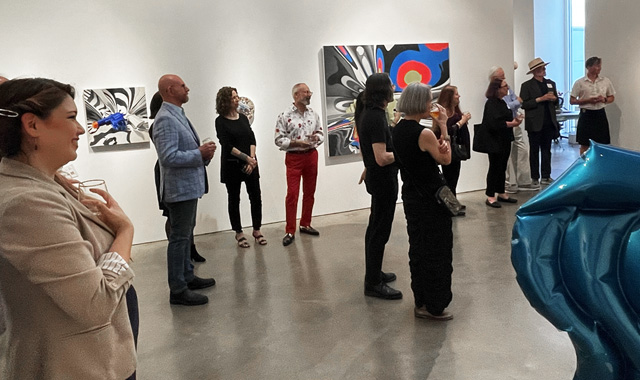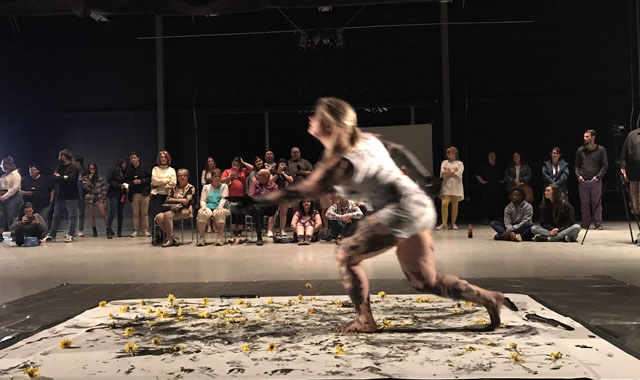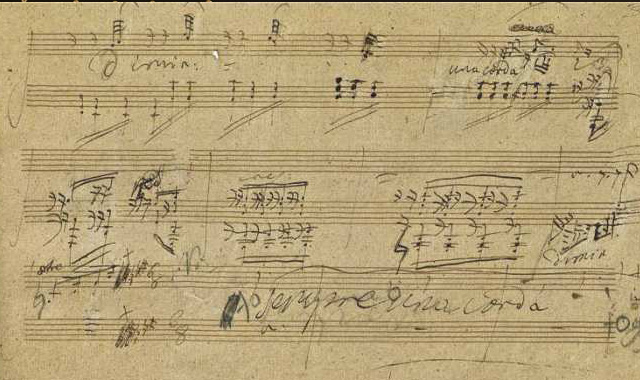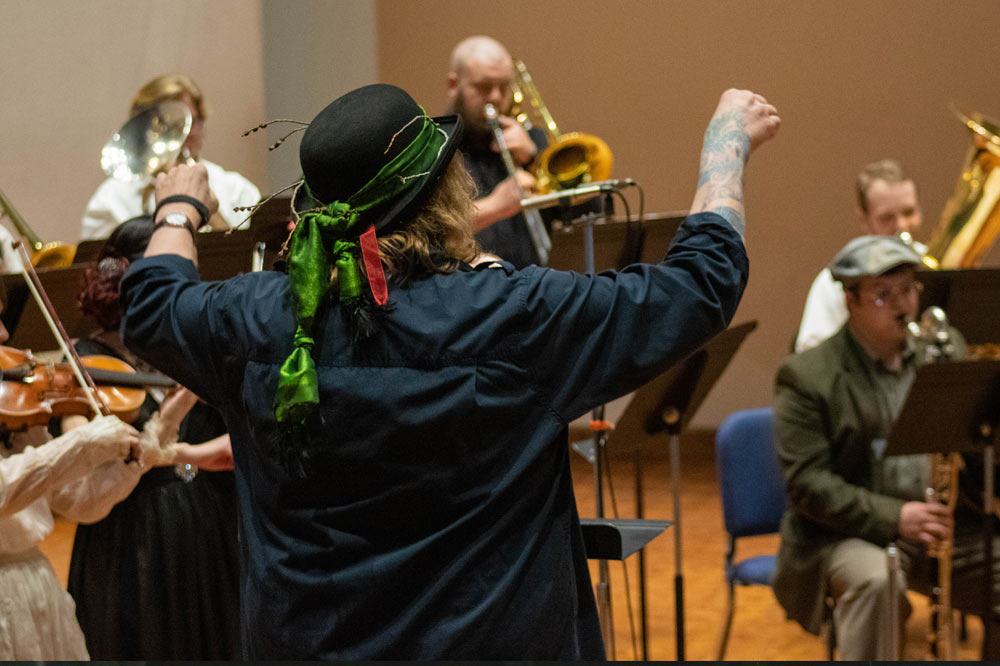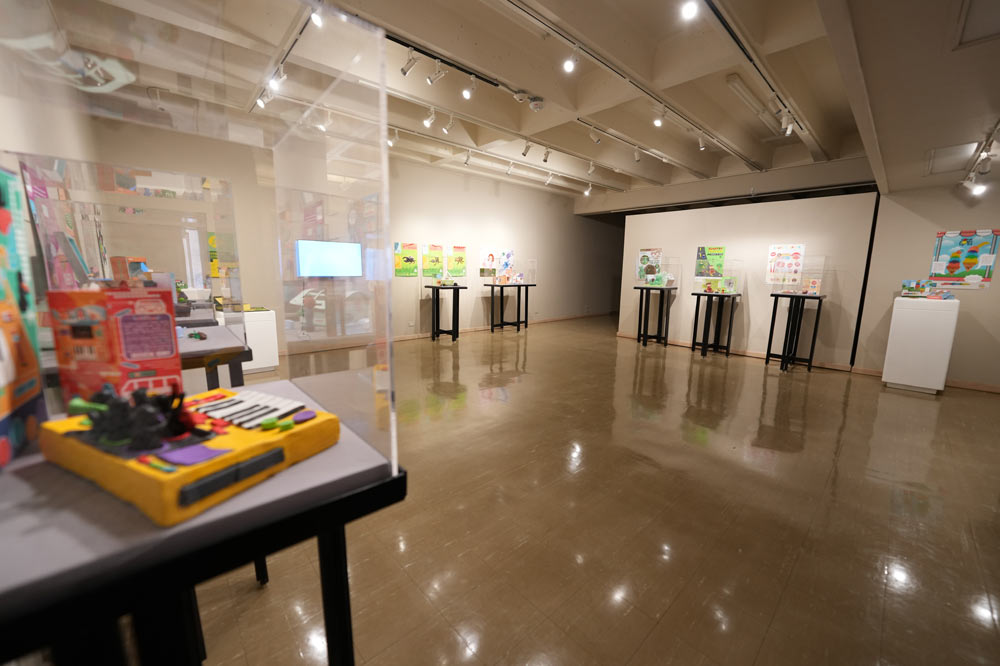
Department of
Interdisciplinary Arts
Ph.D. in Fine Arts
Ph.D. in Fine Arts
We train public-facing, interdisciplinary scholars and artists
The arts are not silos or ivory towers. They are dynamic practices of give and take. Texas Tech University’s unique Fine Arts Doctoral Program (FADP), which leads to a PhD in Fine Arts, encourages students to pursue creative-critical study of the arts as an energetic exchange between multiple disciplines. Our students work both deeply and broadly. They balance focused disciplinary investigation with more integrative research bringing together approaches from the arts, social and natural sciences, and/or humanities. The FADP serves two types of students: 1) those with interdisciplinary scholarly or practice-based research interests, and 2) those with disciplinary research agendas who also want to increase their breadth as educators or administrators in a variety of institutional contexts. Student dissertation projects vary widely—from the creation of a festival of theatre and performance art in shipping containers to evolutionary explanations for music and dance, from an analysis of medieval altarpieces as technologies of virtual reality to a feminist approach to voice-image relations in Iranian film.
Some of our students use different disciplinary practices to answer cross-disciplinary questions; others conduct research within a single discipline, but also want the broader knowledge necessary to be a leader in an institution serving diverse needs. Ultimately, interdisciplinarity does not disparage or deny the disciplines, but depends on them for their methods and insights, even as it reorganizes their commitments. The FADP sees interdisciplinarity as a performance of world-making aimed at both current and future cultural institutions.
Programs by Track
Although the coursework is interdisciplinary, our students are situated within a specific track, making them more legible to hiring committees and facilitating the disciplinary components of the program.
track List
Program Features
Our program, which was started in 1972, prepares students for disciplinary excellence and interdisciplinary innovation. Our students ask big questions—about power dynamics, aesthetic forms, cognitive processes, the diversity of embodied experience, and the ethics of artistic creation—and have a wide variety of methodological tools at their disposal. Student experience is heavily customized to serve individual research interests.
The FADP Interdisciplinary Core
A freshly redesigned set of Core Courses bringing together students interested in music, theatre, dance, and visual art
Research with Practice
Training in practice-based research serves students' passion for arts-making
Opportunities for collaborative, place-based, and community-engaged education
Student Support
Opportunites for teaching within and outside of students' primary disciplines
Research projects and travel supported through the TCVPA's Research and Creative Activity Awards (RCAA) and the TTU Graduate School's Research Awards and Dissertation Completion Fellowships.
Faculty
Affiliated faculty from across the university to facilitate transdisciplinary research
Faculty members' wide-ranging expertise--from community engagement and the criticial posthumanities to data-driven approaches in arts research
Admissions
How to Apply
Students will choose a specific track within the arts based on interest. Contact the coordinator of your desired track.
- For acceptance into the doctoral program, the applicant must have completed a Master's-level degree, or its equivalent, with experience and training in some area of the arts (whether or not directly connected with the Master’s degree), and demonstrate strong scholarship and professional competence.
Fine Arts PhD Applications are completed in the Texas Tech Graduate School Application Portal. In that portal, you will be asked to provide the following:- Transcripts from all previous college-level study
- 3 letters of recommendation
- CV/Resume
- Scholarly writing sample: 10-30 pages of your best research or academic writing
- A portfolio and/or GRE scores (varies by track).
- Cover letter/Personal Statement
- Possible supplemental questions (varies by Track)
- What does the admissions committee need to know while considering your application? Tell us the part of your story that is not in the application documents.
- Which advisor are you hoping to work with and why?
- Briefly describe the aspects of your background relevant to your interest in applying to this program. This might include your undergraduate studies and any other graduate study or relevant professional work, if applicable.
- The Fine Arts Doctoral Program offers a unique interdisciplinary education in Art, Music, Theatre, and Philosophy; and provides a comprehensive approach to doctoral study of the arts. These final questions are of high importance to the FADP admissions committee:
- Explain why this program interests you.
- Describe your interest in the interdisciplinary core of our doctoral program.
- Is there something in your background that demonstrates your interest or expertise in a) multiple art forms, b) the relationship between the arts and the humanities, AND/OR c) the relationship between the arts and the sciences? If so, what is it?
- Finally, an interview with the graduate faculty overseeing the desired FADP Concentration, either in person or via video conference, is typical and required in some Tracks.
Ph.D. in Fine Arts Coordinators
Recent Graduates
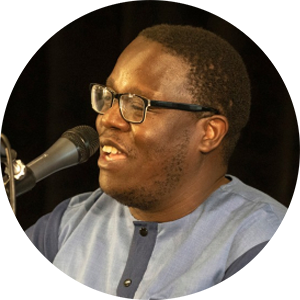
Dissertation
Orchestrating Social Competence: On the Transformative Work of Musicking in Two Ugandan
NGOs (M-LISADA and Brass for Africa)
Track
Music track, music education concentration
Dissertation Chair
Janice Killian
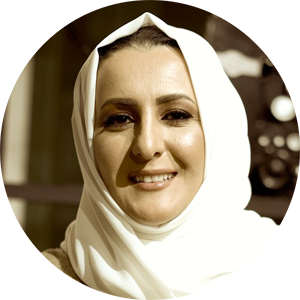
Dissertation
The Conflicted Living Beings: The Performative Aspect of Female Bodies' Representations
in Saudi Painting and Photography
Track
Art
Dissertation Chair
Jorgelina Orfila

Dissertation
Working Through Grief: Continuing Bonds in the New Golden Age of Television
Track
Art
Dissertation Chair
Heather Warren-Crow

Dissertation
Applying Event Schema Theory to the Evolving Dramaturgies of Dramatic Literature
Track
Theatre track, History/Theory/Criticism and Acting/Directing concentrations
Dissertation Chair
Andrew Gibb
Department of Interdisciplinary Arts
-
Address
School of Theatre & Dance Building | Box 45060 | 2812 18th Street STE 222 | Lubbock TX 79409 -
Phone
806.742.0700

